The College of Physicians and Surgeons of Ontario (CPSO) has reviewed the complaint filed against the McLean clinic. The McLean clinic specializes in transgender “top surgery” and uses social media extensively to promote its services. The CPSO’s decision specifies that the clinic is in non-compliance with the Advertising Regulation of the Medicine Act that regulates the conduct of physicians in Ontario.
The Advertising Regulation specifies that “information communicated must not be false, misleading or deceptive; must not contain a testimonial; and must be readily comprehensible, dignified and in good taste.” The CPSO committee identified several misleading and deceptive claims; the usage of post-surgery testimonials and an image of a physician dressed in a Santa hat holding up buckets of breast tissue was determined to be undignified and must be removed.
The decision outlines a number of changes that are required by the clinic in terms of how they market their services. Yesterday, the McLean Clinic made their Instagram account private. Instagram is a favourite social media tool among young people and the McLean clinic’s @topsurgery account has amassed over 14,000 followers. Given the decision made by the CPSO we expect that the new “private” status is only the first step towards compliance and we will continue to monitor the situation closely.
The decision from the CPSO states:
For the reasons set out below, the Committee advises the Respondent to follow Part II of Ontario Regulation 114/94 under the Medicine Act 1991 with respect to advertising (“the Advertising Regulation”), including that when physicians communicate about their professional services, the information communicated must not be false, misleading or deceptive; must not contain a testimonial; and must be readily comprehensible, dignified and in good taste. This is an educational disposition, designed to offer the physician some guidance regarding an area of practice in which the Committee has noted concerns, to assist the physician in improving future practice.
The complaint process included an opportunity for the physicians identified in the complaint to review and respond to the complaint and this decision is the final ruling of the CPSO.
Two physicians were named in the complaint: Dr McEvenue and Dr McLean. The CPSO informed us that Dr McEvenue has relocated to Florida and no longer provides services at the clinic.
The decision outlines the following obligations of the clinic:
As set out in the College statement, Social Media — Appropriate Use by Physicians:
The College’s position is that physicians are expected to comply with all of their existing professional expectations, including those set out in relevant legislation, codes of ethics, and College policies, when engaging in the use of social media platforms and technologies.
Re: Advertising/Promotional material on the Internet
Subsections 6(1) to (3) of the Advertising Regulation state that:
(1) A member may communicate any factual, accurate and verifiable information that a reasonable person would consider material in the choice of a physician,
(a) in or through a medium of communication that is equally accessible to all interested members; or
(b) in a printed document that is made available only within the premises where the member practises or to a person who requests a copy, or both. O. Reg. 114/94, s. 6 (1).
(2) Information communicated under subsection (1) must not,
(a) be false, misleading or deceptive by the inclusion or omission of any information;
(b) contain a testimonial or any comparative or superlative statements; or
(c) contain any reference to a specific drug, appliance or equipment. O. Reg. 114/94, s. 6 (2).
(3) Information communicated under subsection (1) must be readily comprehensible, dignified and in good taste. O. Reg. 114/94, s. 6 (3).
Even if a physician does not directly maintain their clinic website or social media presence, they are responsible for ensuring the content used complies with the Advertising Regulation.
In the Committee’s view, after reviewing the sample images provided to us from the McLean clinic’s Instagram account and website, the Committee concludes that some of the material does not comply with the Advertising Regulation.
In the Committee’s view, after reviewing the sample images provided to us from the McLean clinic’s Instagram account and website, the Committee concludes that some of the material does not comply with the Advertising Regulation.
College of Physicians and Surgeons of Ontario
In the Committee’s view, the photograph showing the Respondent holding up buckets labelled breast tissue is not dignified or in good taste, regardless of whether the clinic has received positive feedback about it, and thus the use of this photograph is contrary section 6(3) to the Advertising Regulation.
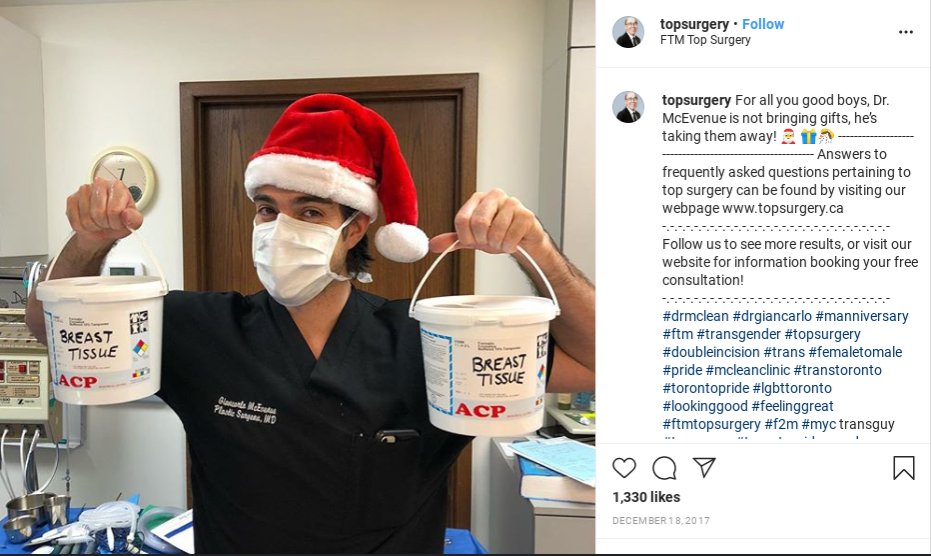
The Committee has previously determined that “before and after” photographs are equivalent to testimonials, and thus the use of these photographs is contrary to the Advertising Regulation which indicates that when physicians communicate their professional services, the information must not contain testimonials as per 5 section 6 (2) b. In this case the post-surgery image of a patient is a testimonial in our view, and contrary to the Advertising Regulation.
The inclusion of a photograph of an “ideal” male chest in clinic promotional material on the Internet is misleading in that the results depicted are impossible to achieve using female to male top reconstruction surgery, and thus contrary to section 6(2) a of the Advertising Regulation.
The Committee also notes indicating that people will have an improved relationship following surgery is a false claim, and contrary to section 6(2) a of the Advertising Regulation, unless there is evidence to support this claim. Similarly, if patients claim their relationships improve after surgery, this would be considered a testimonial and contrary to the Advertising Regulation.
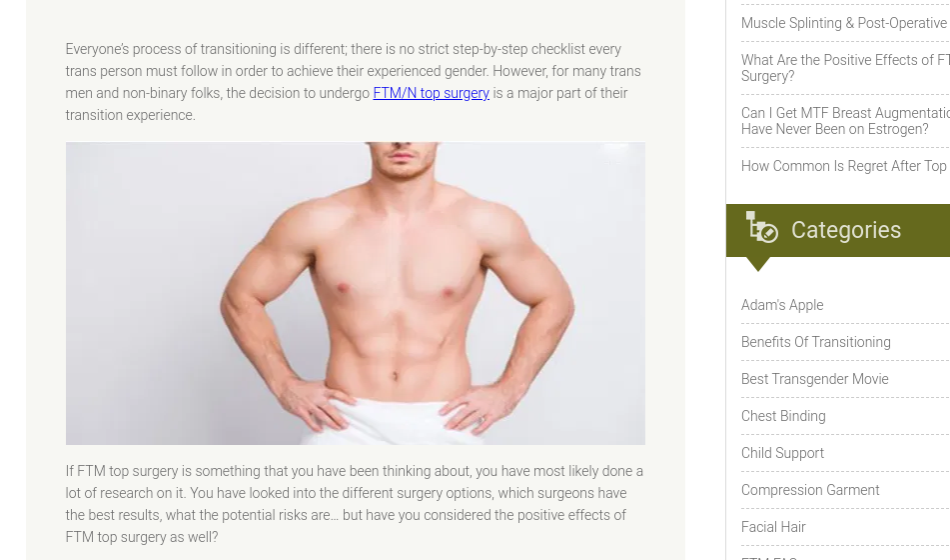
Having photographs showing the possible outcomes, such as scarring, hematomas being drained, seromas, asymmetry may be educational; however, the Committee comments that a list of these possible outcomes without photographs may suffice, and photographs can be shown in the office when obtaining consent rather than used in advertising medical services.
The Respondent told the College that the clinic’s advertising is not directed at minors and they are not trying to entice minors to have surgery. The Committee accepts that the clinic is not intending to attract patients of a particular age.
The Committee also noticed that the clinic has allowed comments and replies to postings on social media platforms, such as Instagram and YouTube. Again, some of these comments are equivalent to testimonials or in bad taste, and as a result are contrary to the Advertising Regulation. The clinic either should not allow such comments or have a mechanism to monitor and remove them if they are contrary to the Advertising Regulation.
For the reasons set out above, the Committee advises the Respondent to follow Part II of Ontario Regulation 114/94 under the Medicine Act,1991 with respect to advertising (“the Advertising Regulation”), including that when physicians communicate about their professional services, the information communicated must not be false, misleading or 6 deceptive; must not contain a testimonial; and must be readily comprehensible, dignified and in good taste.
Awaiting Full Compliance
The complaint was filed by Pamela Buffone on behalf of a coalition of advocacy groups including Canadian Gender Report, Parents of ROGD Kids, Canadian Women’s Sex Based Rights, and detransitioner GNC-Centric. The coalition is very satisfied with this ruling as long as the McLean clinic proceeds with full compliance.
Post-surgery photographs that are shared on the clinic’s @topsurgery Instagram account often depicted very young patients. There is no minimum age for gender reassignment surgery in Ontario. In many cases, the McLean clinic photographs depicted the post-surgery effect of rendering teenaged girls to look like prepubescent children who had had their breasts removed with a surgical procedure. The feedback we received from people who viewed these images was that they were deeply disturbing.
We had expressed a privacy concern for these patients within our initial complaint, however, the CPSO ruled that the clinic uses a 2 step process to ensure patients provided express consent for their images to be used on social media and therefore did not violate patient privacy legislation. As testimonials, however, they violate the Advertising regulation of the Medicine Act and must be removed.
The CPSO did not find that the McLean clinic was actively targeting a particular age group. This week, they changed their Instagram @topsurgery account to be a private account which requires people to be approved followers. We do not expect that making the post-surgery testimonial photographs and comments “private” on Instagram materially changes the purpose for which the photographs are being shared by the clinic and therefore remains non-compliant.
The ruling is imposing a substantial change in the digital marketing strategy used by the McLean clinic to advertise and promote its services to prospective clients, including minor children and young people. We expect that the changes being made to the clinics’ Instagram account indicate that they intend to fully comply with the CPSO decision and we will monitor and follow up as necessary.
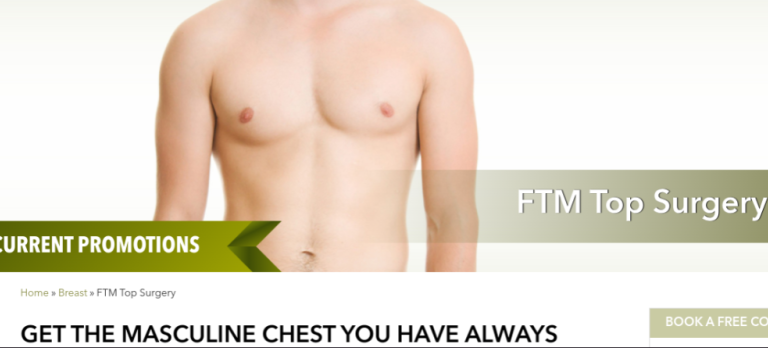

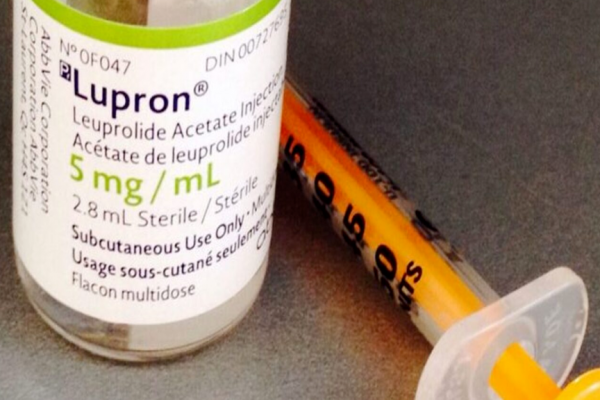
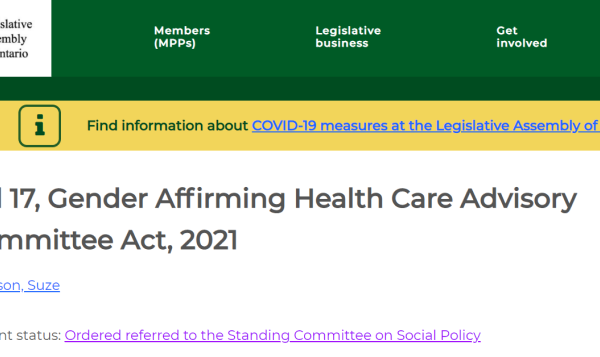
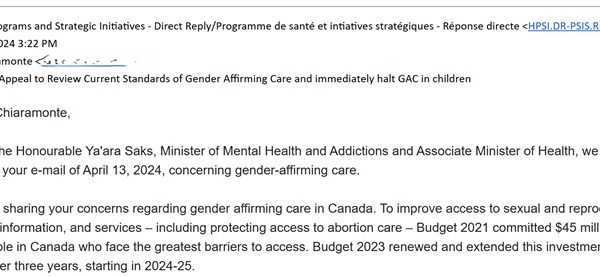
I’m so grateful to you Pam! The trans ideology needs to be reined in. There are too many young women and girls that are falling for this.
Any monster who believes this is ethical practice should be hauled away and arrested for crimes against humanity. This is a male, folks, taking away female body parts.
Even calling it “top surgery” is medically unethical. It’s a double masectomy and it’s a huge deal, not some cute, quick procedure that brings joy.